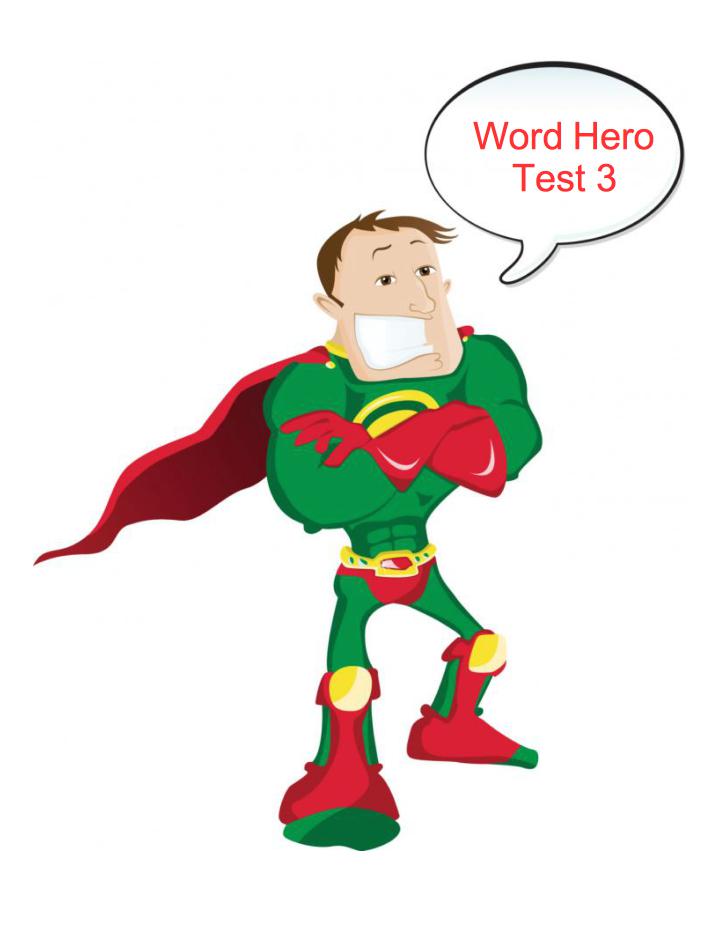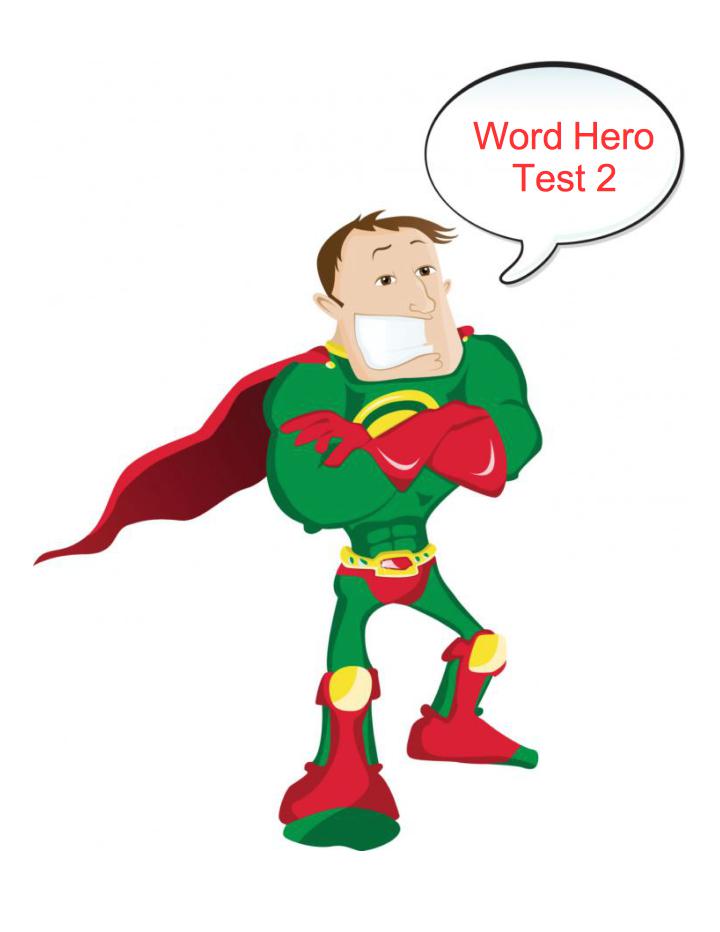
German Language Game: anrufen - to call
German Language Game: "anrufen" and "zurückrufen".
With this fun interactive German game, you'll learn and practice how "separable prefix verbs" work:
- anrufen - to call
- zurückrufen - to call back
Simple Present:
- Er ruft Claudia an. - He calls Claudia.
- Du rufst zurück. - You call back. (familiar)
- Sie ruft dich an. - She calls/She'll call you. (familiar)
IMPERATIVE:
- Ruf mich an! - Call me! (familiar)
- Rufen Sie mich zurück! - Call me back! (formal)
With Modal:
- Wir können unsere Freunde anrufen. - We can call our friends.
- Er will seinen Vater zurückrufen. - He wants to call his father back.
Future:
- Ich werde dich später anrufen. - I'll call you(fam.) later.
- Ich werde sie gleich zurückrufen. - I'll call her back right away.
Present Perfect (Conversational Past):
- Wer hat angerufen? - Who called?
- Deine Schwester hat angerufen. - Your(fam.) sister called.
To practice your German comprehension, listen to this conversation, which occurs when our traveler Michael calls the number of his friend's apartment.
More Than a German Language Game
Don't forget: You can practice German online for FREE with our 36-Scene German 1 Story: "Michael in Deutschland" and our 72-Scene German 2 Mystery Story Sequel: "Blüten in Berlin?".
(If you already know that "Blüten" means blossom in German - you'll learn that Blüten has still another meaning...).
Just login HERE.
And, if you have any language questions - don't hesitate to contact us!
German Language Game: Word Hero 3

German Language Game: "Word Hero" Test 3.
Test yourself on 5 common adverbs.
These all end in -lich (in German):
- natürlich - of course
- wirklich - really
- endlich - finally
- ziemlich - quite
- plötzlich - suddenly
Play to build your vocabulary and improve your pronunciation!
If you like our games, please SHARE us with your friends.
More Than a German Language Game
And don't forget: You can practice German online for FREE with our 36-Scene German 1 Story: "Michael in Deutschland" and our 72-Scene German 2 Mystery Story Sequel: "Blüten in Berlin?".
And - if you already know that "Blüten" means blossom in German - you'll learn that Blüten has still another meaning...). Just login HERE.
(And please know: we are only asking you to register, so you can continue to pick up your course where you left off!)
Our story courses seem to be most effective for learners who have had some contact with the language before (in school, on travels, or through self study.
We provide basic language in context, spoken at natural speed. By listening and repeating words, phrases and sentences as often as you can, the music of the language will go into your ear and into your brain. It's a good start for learning to sound like a native speaker.
You'll learn and practice words and phrases individually and in the context of short conversations. Always say the German out loud. Your listening and pronunciation skills will improve a lot!
If you have any language questions - don't hesitate to contact us!
German Language Game: Word Hero 2

German Language Game: "Word Hero" Test 2: 10 Nouns.
As you play repeat the words out loud and try to anticipate the answers.
You'll your improve your pronunciation and build your vocabulary.
One way to remember the correct article is to say it together with the noun several times and recall it from time to time. That way you'll learn which one "sounds right".
That how we know when something is right in our own language.
- der Tag - the day
- der Tisch - the table
- der Kaffee - the coffee
- der Spaß - the fun
- die Wohnung - the apartment
- die Küche - the kitchen
- die Tür - the door
- das Zimmer - the room
- das Mittagessen - the lunch
- das Bild - the picture
If you like our games, please SHARE us with your friends.
More Than a German Language Game
And don't forget: You can practice German online for FREE with our 36-Scene German 1 Story: "Michael in Deutschland" and our 72-Scene German 2 Mystery Story Sequel: "Blüten in Berlin?".
(And - if you already know that "Blüten" means blossom in German - you'll learn that Blüten has still another meaning...). Just login HERE.
If you have any language questions - don't hesitate to contact us!
And if you liked this Word Hero Game, check out Word Hero: Test 1 (to practice and learn 10 Basic Verbs) or try Word Hero: Test 3.
German Language Game: gehen
German Language Game: "gehen" (to go, walk).
Learn and practice the present forms of "gehen" and four verbs that combine with "-gehen".
You'll also put together four simple sentences.
Always repeat out loud after the speaker!
Vocabulary in German Language Game
- ich gehe - I go, walk
- du gehst - you go, walk (familiar)
- er geht - he goes, walks
- wir gehen - we go, walk
- ihr geht - you go, walk (pl, familiar)
- sie gehen - they go, walk
- Sie gehen - you go, walk (formal)
- weitergehen - to walk on
- weggehen - to go away
- hinaufgehen - to go up
- vorbeigehen - to walk by, go by
- Ich gehe weiter. - I walk on.
- Er geht nicht hinauf. - He does not go up.
- Kannst du bitte weggehen. - Can you please go away.
- Wir gehen beim Bäcker vorbei. - We're going by the baker's.
Note: The verbs "weitergehen", "weggehen", "hinaufgehen", and "vorbeigehen" are "separable prefix verbs".
This means that in a sentence where the verb is conjugated, the prefix (the first part of the word) goes to the end.
In its infinitive form, the two parts of the verb stay together.
Examples
- Ich gehe weiter.
- Ich möchte weitergehen.
- Er geht nicht hinauf.
- Er will nicht hinaufgehen.
- Du gehst weg.
- Kannst du bitte weggehen.
- Wir gehen beim Bäcker vorbei.
- Wir wollen beim Bäcker vorbeigehen.
If you like our games, please SHARE us with your friends.
More Than a German Language Game
And don't forget: You can practice German online for FREE with our 36-Scene German 1 Story: "Michael in Deutschland" and our 72-Scene German 2 Mystery Story Sequel: "Blüten in Berlin?".
(And - if you already know that "Blüten" means blossom in German - you'll learn that Blüten has still another meaning...). Just login HERE.
If you have any language questions - don't hesitate to contact us!
![]()
German Language Game: Wissen - Present Tense
Ouick German Language Game - the verb "wissen" - to know (a fact).
Level: Beginner (A1)
Time to Play: 4 minutes
You'll learn and practice the present tense forms of the verb "wissen" (to know), which is irregular.
The singular forms "ich, du, er, sie, es" have a long vowel "-ei-", and are spelled with the letter "ß" (pronounced "ss").
The plural forms "wir, ihr, Sie, sie" have a short vowel "-i-" (-ih), and are spelled with "-ss-".
Wissen - Present Tense
- ich weiß - I know
- du weißt - you know (familiar)
- er, sie, es weiß - he, she, it knows
- wir wissen - we know
- ihr wisst - you know (plural)
- Sie wissen - you know (formal)
- sie wissen - they know
Sentences with forms of the verb "wissen"
- Wissen Sie, wie sie heißt? - Do you know what her name is?
- Ja, ich weiß es. - Yes, I know (it).
- Sie wissen nicht, wo sie wohnt? - You don't know where she lives?
- Doch. - Yes, I do. (contradicting a negative)
- Doch, ich weiß, wo sie wohnt. - Yes I do, I know where she lives.
With our games, you learn German in small chunks.
More Than a German Language Game
And don't forget: You can practice German online for FREE with our 36-Scene German 1 Story: "Michael in Deutschland" and our 72-Scene German 2 Mystery Story Sequel: "Blüten in Berlin?".
(If you already know that "Blüten" means blossom in German - you'll learn that Blüten has still another meaning...).
Just login HERE.
If you have any language questions - don't hesitate to contact us!
